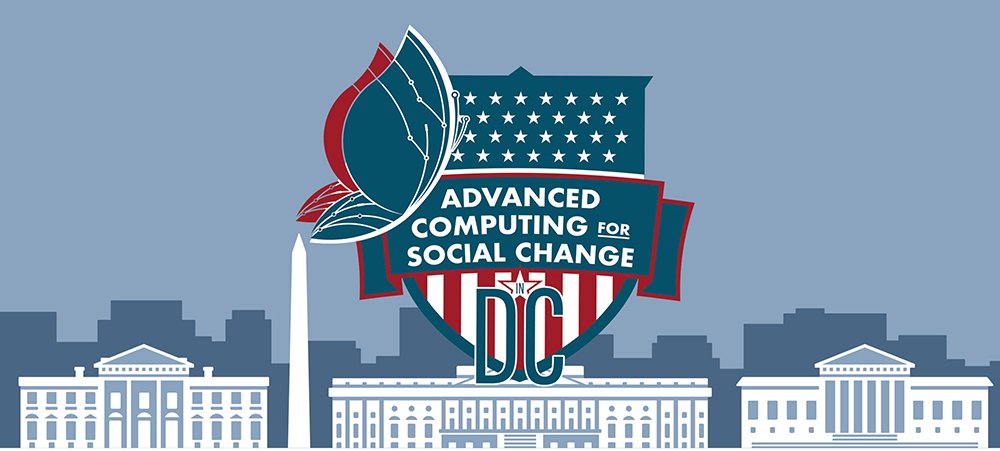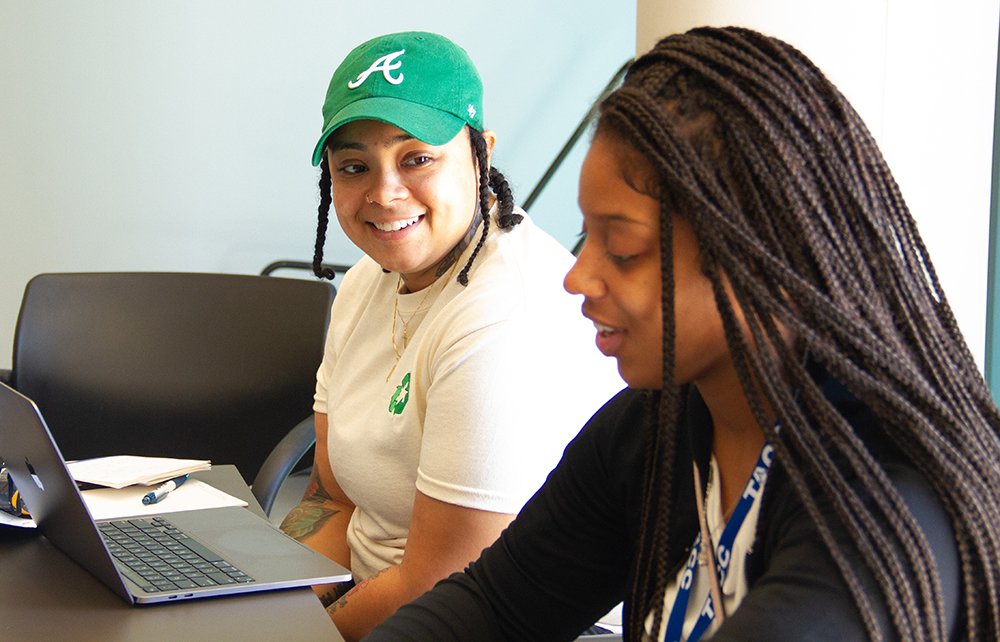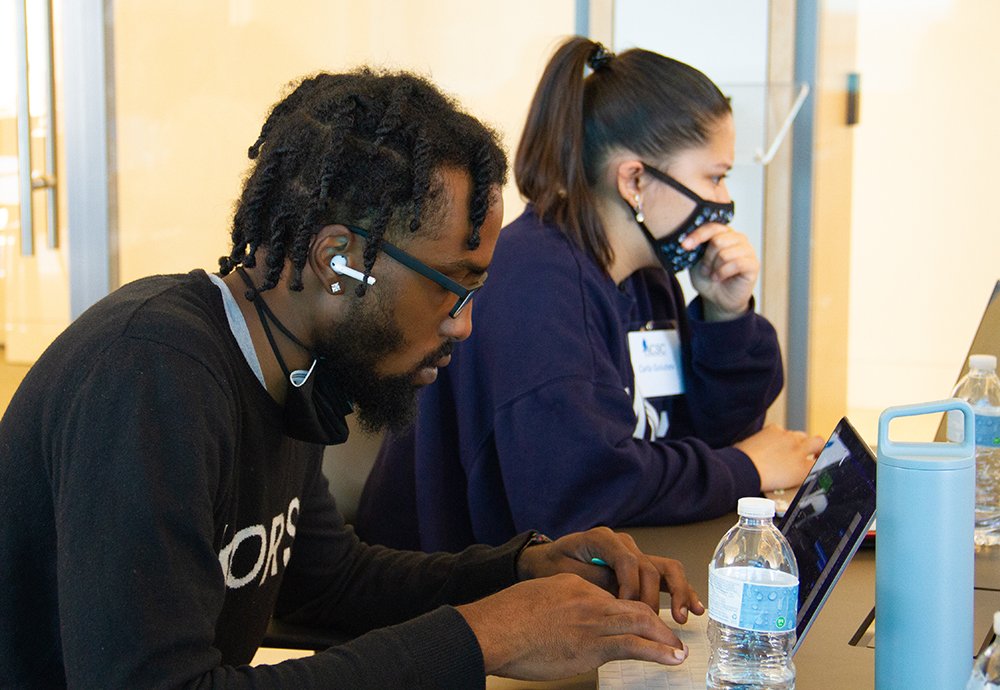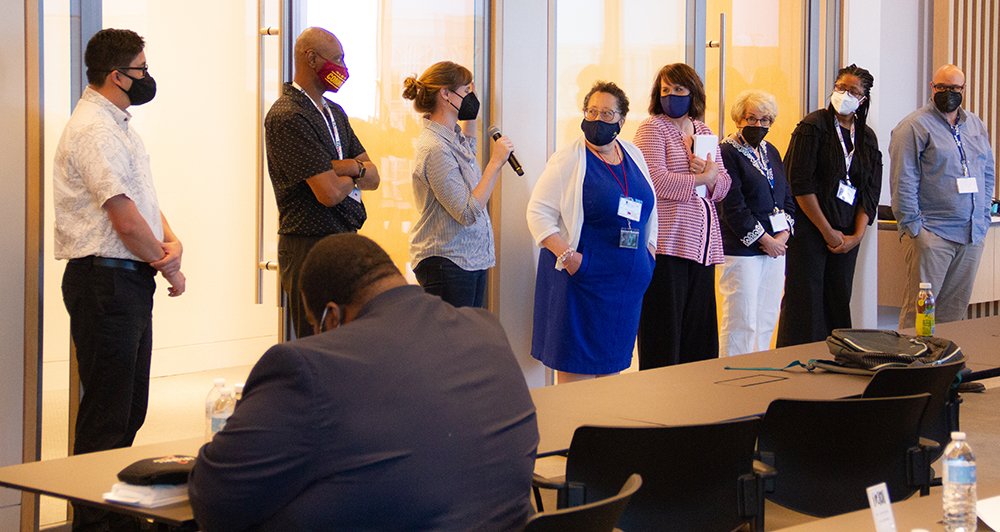People & Programs
Damian Hopkins
Transformative Experiences
ACSC participants from historically underrepresented backgrounds identify, communicate data-driven policy solutions for pressing social challenges

In May 2022, more than 40 college students, opportunity youth, and mentors traveled to Washington, D.C. for the 2022 Advanced Computing for Social Change (ACSC) East Coast event. Established in 2016, the ACSC Institute offers unique opportunities for participants to engage in data visualization and data analysis training to explore social challenges.


From computer science majors to aspiring musicians, the participants represented a diverse mix of perspectives and personalities. More than 50% were Black, over 20% were Latinx, 56% were women, and many were first-generation college students.
“Being part of a free program for people of all ages and backgrounds to learn and use supercomputers to analyze data excites me,” said Dawn Hunter, a program manager with the Education & Outreach team at the Texas Advanced Computing Center (TACC) at UT Austin.
“Most of the participants had not previously trained to be computer programmers or work with statistics, but they were able to learn Python or R Studio and work with data,” she said.
Participant Aisha Frampton-Clerk’s presentation focused on whether New York City subways are fully accessible for wheelchair users, per requirements laid out in the Americans with Disabilities Act. The law mandates that people with disabilities have access to public accommodations without discrimination.
Her study concluded that only 23% of subway stations grant full access to people with disabilities, which includes accommodations like elevators or ramps, large-print and tactile-Braille signs, and accessible service entry gates. To compile and study her data, she used Python, Jupyter Notebooks, and TACC supercomputers.
“The opportunity to research and present something you’re passionate about makes ACSC personalized to you in ways that other programs can’t match,” Frampton-Clerk said.
Said participant Duane Howard, “As a Tesla fan, it would be a dream to work alongside their team.” He plans to use the knowledge he learned at ACSC to pursue a career in technology.
“The opportunity to research and present something you’re passionate about makes ACSC personalized to you in ways that other programs can’t match.”
Using data analysis and supercomputing resources, Howard’s presentation analyzed how family structure influences secondary-school completion in Texas. His findings: African American students graduate at the lowest rate (85.2%) while dropping out at the highest rate (9.5%). By comparison, Asian students graduate at the highest rate (95.4%) while dropping out at the lowest (2.2%). Contributing factors include a lack of reliable transportation and an overwhelming sense of responsibility to support a family.
“I grew up in a rough environment, so I’ve seen these things firsthand,” Howard said. “I want to teach the lessons I learned at ACSC to my younger brothers, so they don’t have to go through the same things I did.”

For founding member Linda Akli of the Sustainable Horizons Institute, these testimonials are the fulfillment of ACSC’s purpose.
“ACSC has successfully created a framework for engaging students from historically excluded groups and those outside of computer science in computational science, data science, and the use of supercomputing,” Akli said. “We’ve been able to encourage participants and help them build skills that are necessary in academia, industry, and government, so they can address the problems in their communities.”

